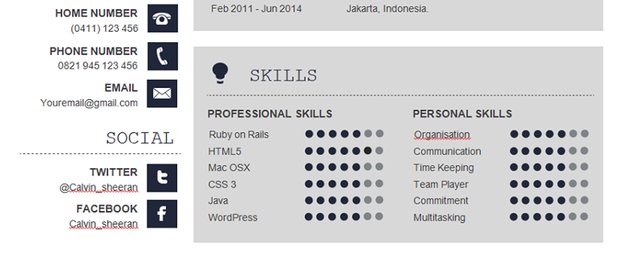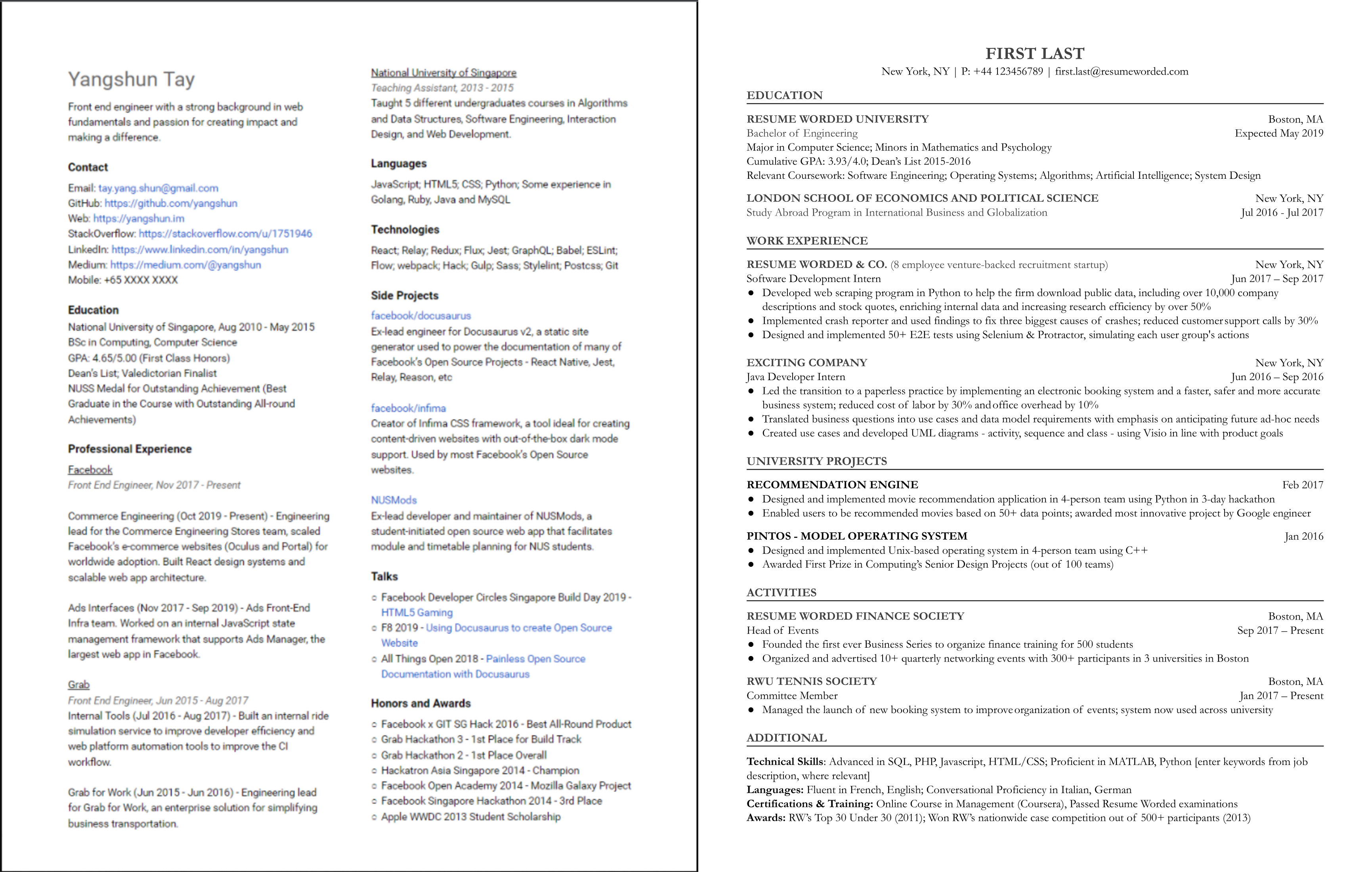 Logicmojo - Updated Jan 28, 2023
Logicmojo - Updated Jan 28, 2023
Software engineers are in high demand, so there’s no shortage of opportunities for people with the right skills. Job resume is very important.But just because you know how to design cloud solutions or build server-side web applications doesn’t mean you’ll instantly have scores of interviews lined up the minute you decide to look for a new job. You’re going to need to write a great resume first.
CV writing for software engineers is one of the most challenging parts of the job search, even though it is necessary for landing a career. To be a successful candidate, you’ll need a comprehensive resume that highlights your accomplishments. The problem is that creating the perfect resume can be a time consuming and frustrating process.
For those of you who are starting out on your job search, and have questions about how to prepare a great résumé that can get your foot in the door, then this article is for you.
“Unemployment is an excellent time to beef up your resume.” — Author CTCI (Gayle McDowell)
Many a time, we are constantly applying to job opportunities and aren’t getting any response or have you received a reply similar to:
“Hey thanks for applying for the role of Software Engineer with xyz company. Unfortunately, you are not shortlisted for the interview this time.”
Are you wondering what went wrong despite considering yourself qualified enough? Are you confused on why you are not even shortlisted for the interview despite mentioning 3 different programming languages, multiple pages of description, and much more quality things?
What do recruiters want to see in a CV?
When writing a resume, it’s important to remember who your audience is: recruiters. Recruiters want to reach out to talented candidates. In fact, it’s their job to always be on the lookout for talent. You need to write your resume with recruiters in mind, making it easer for them to find the information they need.
Things varies from recruiter to recruiter and also depends on the role for which you're applying. For one, they don't look through stacks of resumes anymore. they do everything online.
🚀Most Recent Role: This is for experienced candidates, generally they trying to figure out what this person's current status is, and why/if they might even be interested in a new role. Have they only been in their last position for 3 months? If so, probably not the best time for me to reach out. Have they only been in their role for a few months and they're possibly hating it? But most importantly, is their most recent experience relevant to the position for which I'm hiring?
🚀Technical and cognitive skills: Recruiters keep an eye on is whether you have relevant skills for the job. So, always try to list relevant job skills on your CV. This includes both cognitive and technical skills, such as soft skills, programming languages, and more.
Don’t assume that a recruiter already a lot about the technical skills you present. Most recruiters don’t have the same background, so they will simply try to match the skills on your CV with those in the job description.
🚀Keyword search: Does the person have the specific experience for the role I'm hiring for? There have been times when they search partiular keyword. Suppose somemone is hiring for software dev role then they might be searching for data structure, frameworks, languages etc, or let'say they are hiring for site reliability engineer (SRE's) then they might be searching for data structure, networking concepts, linux, system design etc.
What to Include
🚀Customizing Resume: The most common mistakes everyone makes while writing a resume is to not customizing it as per the job requirements. It definitely requires extra time, but it is worth it. If you are applying for the role of Java Developer, and your resume doesn’t contain your proficiency in Java then you are most likely to get rejected straight away.
🚀Single Page Resume: Recruiters do not have a lot of time to read everything that is written in a resume of 2-3 pages, they review a resume for 20-30 seconds. So, what do you think they will prioritize? The answer is “Work Experience”. As a fresher can you put your work experience in one page or half page? Obviously yes. So, keep your resume short up to a single page. Also, when you are writing less then you will write only important things about you.
🚀Projects: Prove that you can actually code! Unlike most professions, in software engineering a GPA cannot accurately reflect your dev skills. Getting good grades doesn’t necessarily mean you can develop software. At most, add your 2-3 good projects that you've done in your college life or were part of the company's project in case of experienced candidates. You can also categorize your projects as minor and major projects.
🚀Languages / Technologies: Many resume reviewers will go straight to this section to see if you have experience with the technologies/languages their company uses. Be careful: if you list a programming language on your resume, you should be confident that you can answer a coding question about it. Or you can give ratings about your knowledge in that particular language.

🚀Include Accomplishments: Making your resume accomplishment-oriented instead of responsibilities oriented will help recruiters understand your excellence in possible areas. Accomplishments state the things you have achieved and how well you have managed your responsibilities.
🚀Count Matters: Do not misinterpret the meaning of the word count here. Count doesn’t refer to the number of experiences or projects or certificates you list in your resume. But whatever you write, adding count/figures in terms of your achievement will drive attention and make you stand out. For Example, if you have won any competition then do specify this achievement along with your rank or suppose you've created any function/api that increased efficiency in the production do specify it like increased the efficiency by 75% or improved
Do not Fake: Do not ever fake on a resume. Listing something fake on your resume has a very high chance of getting you into trouble. Recruiters always try to ask questions based on the resume. That is, things you have listed you have expertise in.
Resume Sample
Here's a sample resume. I like using Google Docs as the portability is great and also comes with version control.

Do's and Don’ts in a Resume
| Do's in a Resume |
|---|
✅ Use consistent font (Arial/Times New Roman are OK) and no more than three font sizes for readability |
✅ Use sections (use four major ones: Work Experience, Education, Skills, Projects) |
✅ Use keywords in your résumé, and be accurate. Recruiters do look for keywords in résumés (e.g. Java, Python, Hadoop, real-time are some examples of keywords). |
✅ Use numbers. If you helped a website scale, don’t just write it verbatim — put a metric in there. “I helped the website scale from 10K views/day to 100K views/day.” |
✅ Use an active voice. Use verbs like “designed,” “implemented,” “executed,” “drove,”and “planned.” |
✅ Pick two to three projects you know really well. You should know these from top to bottom, front to back. Knowing two to three projects really well shows dedication and ability to ship things, two desirable traits any company needs. |
✅ Coding profile accounts are OK to list, if it’s relevant. GitHub, Leetcode etc is good and effective for adding in your resume |
| Don’ts in a Resume |
|---|
❌ Do not list all the positions you’ve held since high school. A retail position you held in high school over summer would not be of much interest to a tech company. |
❌ Do not quantify your skill level. Put technologies you’ve worked with, and skip out on labeling them as “Good,” “Expert,” and so on. |
❌ Do not list every single buzzword you’ve heard of. Some examples include “big-data,” “real-time,” “machine learning,” “docker,” and “batch streaming.” Use them with care. You’ll probably be asked to demonstrate your knowledge of these technologies during the interview. |
❌ Do not go in-depth without explaining how it’s relevant. Most candidates have done something cool, but they fail to make recruiters see how it’s relevant. |
❌ Do not list irrelevant skills. Microsoft Excel, Word, and so on are basic computer skills most people know, so you can leave those out. |
